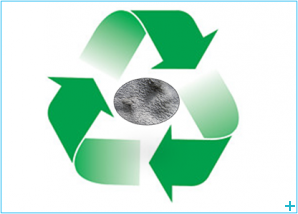From ash to eco-friendly solution for hazardous metals removal
Scientists suggest a new method to transform power plant ash into materials that could be used for nuclear waste treatment or soil remediation.
Inês Crespo, Information Manager, 19/01/2015
The world’s power plants produce about 600 million tones of coal ash every year. If nothing is done about it, this sort of waste might damage the environment. A group of scientists from Greece and Romania suggests a method to turn the ashes produced into an eco-friendly solution.
Ashes are chemically similar to volcanic precursors of natural zeolites. These are typical adsorbents in separation and refinery facilities. The scientists used ash taken from the Iasi power plant in Romania and through a simple, low-cost method were successful to produce adsorbents from it. They have modified the power plant ash by hydrothermal treatment and ultrasonic activation in an alkaline medium (5M NaOH). Furthermore they investigated the effectiveness of the new synthesized sorbents in removing certain metals (Ba, Cd, Cr, Cs, Eu and U) from aqueous solutions.
Thanks to NMI3 support the group could conduct instrumental neutron activation analysis (INAA) experiments at the Reactor Institute Delft to characterise the materials.
The results show that the new materials have enhanced properties with regards to the original ash and proved very efficient in removing hazardous metals from aqueous media. The sorption efficiency was as high as more zeolite formed.
This method could be a cheaper alternative e.g. for nuclear waste treatment or soil remediation while also reducing waste from power plants.
Original publication
F. Noli, G. Buema, P. Misaelides and M. Harja (2014), New materials synthesized from ash under moderate conditions for removal of toxic and radioactive metals, Journal of Radioanalytical and Nuclear Chemistry, 1-9 DOI 10.1007/s10967-014-3762-1
F. Noli, G. Buema, P. Misaelides and M. Harja from the Department of Chemistry, Aristotle University of Thessaloniki in Greece and the“Gheorghe Asachi” Technical University of Iasi, Faculty of Chemical Engineering and Environmental Protection in Romania have received NMI3 support to conduct experiments at the Reactor Institute Delft in the Netherlands.
NMI3 thanks Fotini Noli for reviewing this article.



